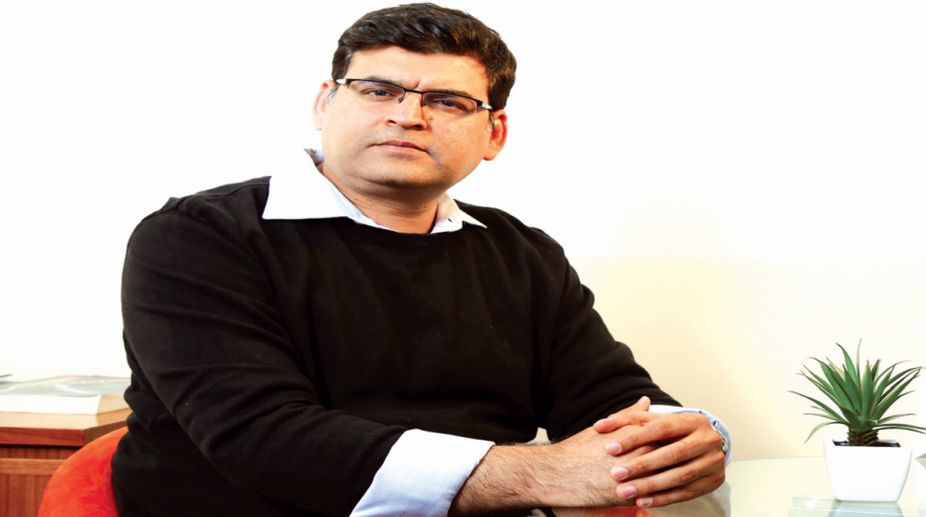Mentored by Imperial College, London, BML Munjal University in Gurugram offers undergraduate and postgraduate courses in business management and engineering. The university is engaged in creating, preserving and imparting internationally benchmarked knowledge to a diverse community of students from across the world.
Vishal Talwar, dean of school of management, BML Munjal University, speaks on the emerging trends in higher education and on how experiential learning and theoretical learning cannot be separated from each other. Excerpts from an interview:
Q. How can management students prepare themselves for the changing global economy and markets especially with technology AI, machine learning and IOT creating disruption in traditional industries and markets?
Management students can prepare better for the future by embracing it rather than dreading it. There is no doubt that technology, AI, machine learning, etc, will have a deep impact on our lives.
However, this should propel young minds to start honing their skills and capabilities and using their time at management school to develop problem-solving capabilities, strategic insights, interpretive skills, depth in their learning and thinking out-of-the-box. Apart from this, students should focus on enhancing their collaborative people-engagement skills.
Technologies will have a major effect on mundane administrative tasks, something that managers do spend a great deal of time. Such tasks increasingly will get automated and thus skills will be an imperative for future managers.
Q. With the management and technology institutions around the world becoming the germination ground for new ideas, what can Indian universities do to create entrepreneurs?
Indian universities should collaboratively help in creating an entrepreneurial ecosystem that attracts more towards setting up their own ventures. The ability of young, budding talent to create younger budding talent, innovations, jobs, etc, is the need of the hour.
Universities should go out of their way to facilitate this transformation through both intellectual and initial monetary contribution. They should facilitate knowledge sharing across the various schools, motivate cross-disciplinary students to work together on their ideas, set up incubation centers and hire specialist people who are able to hone talent.
Q. With every institution claiming to make a difference how is this university different from the others?
With BMU’s 3I guiding principles of Innovation, Inquiry and Impact, we are focused on being able to create a lasting impression and effect on our students. We believe that asking the right questions is a more important skill than learning the right answers. As a young dynamic university, we have been able to pioneer an experience-based curriculum that puts students first and helps them further sharpen their inquiring minds.
Q. Many believe that entrepreneurship is an inherent skill and can’t be taught at business schools. What are your views?
There is some research which suggests that entrepreneurs have a higher concentration of the “aggressor” type gene which is an indicator of risk taking capability, an important characteristic for entrepreneurs. A budding talent requires the right kind of environment, learning, experiences, advice and nurturing to be able to fulfil his or her aspirations. A good business school can do exactly that.
Q. How can MBA programmes be designed to help students develop a global mindset?
MBA programmes can be designed to help students be culturally dextrous and think of themselves as global citizens. This would require them to be comfortable in various environments and ambiguous situations. The philosophical worldview would need to be expanded and this can be enabled through international university immersions, international faculty and student exchange and relevant global oriented cases.
Q. Is the startup culture creating an environment where entrepreneurs feel they would rather learn on the job or are individuals equipping themselves with management skill from MBA schools before they turn to entrepreneurship?
The entrepreneurial bug could afflict us at any stage irrespective of age. However, no one can discount the need for strong fundamental business knowledge that can be acquired through a good MBA programme.
The focus on attitude, aptitude and character within a good business school will put an entrepreneur in good stead especially when the need transitions towards scalability, organisation structure, network and growth. This is the moment when dipping into your MBA learning maybe felt the most.
Q. What according to you are the emerging trends in higher education?
The emerging trends revolve around the delivery of the learning and the nature of the courses that will be useful for future business leaders. With learning becoming location and time independent, there is a lot more focus on technology-based blended learning approaches, gamification and digitisation of content. All this will one day transform academic faculty from a “stage on the stage” to a “guide on the side”.
The other change we see is in the courses, with a definite movement towards specialised programmes. For example, we offer an MBA in business analytics, forensic and fraud accounting, finance and investment banking. These offer an optimum mix of specialist and generalist knowledge for future business leaders.
Q. Do you think experiential learning holds more weightage than theoretical knowledge or are both important?
Experiential learning and theoretical learning cannot be separated from each other. Good experiential learning requires a fulcrum and an understanding of fundamental management concepts. This not only helps students become better decision makers but also enables a constant dialogue between theory and practice.











